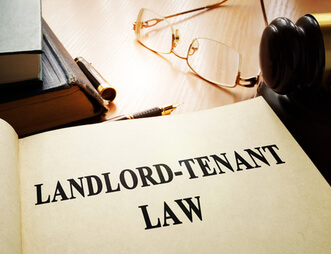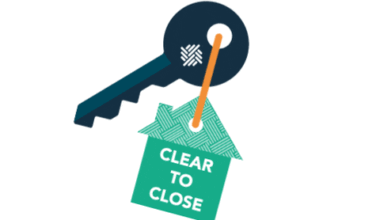While some landlords make a career out of it, most people who rent out properties do it because it’s a profitable type of investment. They own one or a few rental properties and are largely self-educated when it comes to the legal side of the business. In other words, they don’t necessarily keep a landlord-tenant attorney on retainer to answer simple everyday questions. It would not necessarily be cost-effective to do so.
What Is a Landlord Attorney?
A landlord attorney is a lawyer who focuses on landlord and tenant legal issues. This type of attorney is a tremendously valuable resource for you when you need it the most.
Even the most prepared landlord can benefit from legal advice when it comes to managing their rental property. A good landlord attorney will be worth the time investment in everything from drafting a lease agreement to processing an eviction. and fees saved
Landlord-tenant attorneys understand the intricacies of legal property management. They are also familiar with the common issues that plague landlords like you. A landlord attorney can use this knowledge to help you avoid problems that could result in high costs or lengthy legal battles.
When Should I Hire a Landlord Attorney?
Hiring a landlord attorney is always a cost-benefit analysis. Attorneys are expensive, but in some cases, they can save you thousands of dollars and speed uncomfortable processes. So, for most landlords, the issue becomes, “When should I contact an attorney?”
#1. When you are Evicting a Tenant
An eviction is a nuclear option. Not only is the tenant being evicted, but the eviction will be recorded on their record for the next seven years. The tenant’s wrongdoing will be held to a high standard by the judges. While eviction proceedings are hastened, the rules regulating eviction proceedings are stringent.
Landlords who have already experienced an eviction have a better likelihood of successfully evicting a tenant. Even yet, unless you’re a lawyer, there will always be unexpected stumbling blocks. Even if you are a lawyer, there may be unexpected twists and turns. Of course, lawyers are superior at anticipating and handling them. As a result, they’re useful.
If this is your first time being compelled to evict a tenant, having a lawyer guide you through the process might make a tremendous difference. Furthermore, there are some problematic evictions in which even experienced landlords might benefit from the assistance of a lawyer. These are some examples:
- The tenant has hired an attorney and is fighting the eviction.
- Tenant has declared bankruptcy.
- The tenant is a participant in a state-sponsored housing program.
- The tenant is also an employee of yours.
When you are Sued or Investigated for Housing Discrimination
The penalty for illegal housing discrimination is severe. Not only may a landlord face a $16,000 decision, but they could also owe the plaintiff extra damages. If HUD or another agency is conducting the investigation, it’s a good idea to contact a lawyer to ensure that all of your bases are covered.
Worse, this information will almost certainly become public knowledge and be discussed in the media. Not only would a landlord risk financial penalties, but discriminatory acts might also harm their reputation in the community. This could, in turn, cause issues for their company.
An attorney will assist a landlord in managing the process as swiftly as possible in order to avoid it becoming public.

#3. Lawsuits Relating to Property Liability
Lawsuits for Personal Injury
A landlord might be sued for a variety of reasons, but one of the most common is a failure to provide a safe and healthy living environment. Tenants can file premises liability cases if they are injured on the property. In most circumstances, the tenant must be able to demonstrate that they sought to contact the landlord and fix the problem through some sort of communication. For example, if a damaged railing injures a resident, they must notify the landlord that there was an issue in the first place.
The role of carelessness is the central question in all personal injury litigation. When a landlord knew or should have known about a potential safety issue, the courts will hold them accountable. When a landlord’s responsibilities involve specific basic maintenance, or the safety problem was a routine incident that may have been predicted, negligence can be inferred circumstantially. Otherwise, the tenant must directly notify the landlord of the problem. Only if the landlord fails to respond can they be held accountable for harm sustained on their property.
Personal injury lawsuits, on the other hand, are complex matters, and having a lawyer handle them for you will provide the best outcomes.
Lawsuits for Property Damage
If a landlord’s inability to maintain his property causes damage to the tenant’s property, the tenant may sue the landlord for compensation. Some landlords require tenants to get renters insurance, which may cover property damage to tenants’ items that occurs on the premises.
Liability Insurance
Most landlords have liability insurance to protect themselves from potential injuries or property damage caused by their properties. In most cases, insurance companies will hire a lawyer on your behalf to resolve the claim. However, insurance companies may refuse to reimburse losses if the negligence is clear or egregious, or if it violates one of the terms of your policy. You’d need a lawyer at that stage.
What Kind of Lawyer Handles Landlord-Tenant Disputes?
When you have problems with a tenant, it may seem sensible to handle them solely on the basis of your own experience and knowledge. You may know what is required to handle most concerns, but there will be times when you are unsure of the best legal course of action.
Working with an expert rental attorney who is aware of local and state legislation is the best way to address the matter in those circumstances. An expert attorney can help you make the proper legal decisions and give the support you need to keep your rental business moving forward.
Hiring a Landlord Attorney
Have you determined that hiring an experienced landlord-tenant attorney would be a wonderful approach to ensure that your rental property business adheres to the letter of the law? If so, it’s time to start looking.
Finding the appropriate landlord-tenant attorney can be difficult, so here are 9 ideas to help you choose the best one for you.
#1. Make Use Of State And Local Resources
For a list of practicing attorneys in your area, contact the state bar association. There are also a plethora of directory websites that identify attorneys based on their practice area. State business or real estate periodicals may also offer listings or advertisements from landlord-tenant attorneys to assist you to get started on your search.
#2. Consider Using an Online Landlord Attorney Service.
There are numerous directories online for landlord attorneys where you may ask inquiries or contact a local lawyer. RocketLawyer.com is one such directory. They allow you to ask questions and then select an option to have them answered by a local attorney.
#3. Request a Referral From Another Attorney
When it comes to finding a landlord attorney near me, the easiest approach to do it may be to speak with other lawyers in the region.
You may know another attorney who practices in a different area of law but has personal or professional ties to a landlord attorney.
Remember that, just like doctors, attorneys have specialties. Don’t be tricked into thinking that any attorney can handle this type of work. You want to ensure that the lawyer you hire has the knowledge you need to succeed.
#4. Schedule an appointment with each of the attorneys on your short list.
After going through the procedures outlined above, you may have a list of lawyers with whom you are interested in working in the future. It’s now time to whittle down that list.
Begin by calling the attorneys on your list and noting how accessible they are and how promptly they return your call. You want your landlord attorney to be there when you need them, whether it’s an emergency or not.
Set up a brief meeting with the attorneys you’re considering to discuss your needs and the rates they’d charge. This will allow you to conduct more precise comparisons.
#5. Pose a plethora of questions.
When you have the opportunity to speak with the prospective hire, ask questions. This is critical for determining whether they have the correct attitude you’re looking for, as well as understanding whether they have the necessary rental experience.
For example, inquire how long they’ve been practicing landlord-tenant law. It is preferable to hire a landlord attorney with at least a few years of experience rather than a fresh lawyer.
In particular, inquire whether the landlord attorney has prior experience working with a property similar to yours, such as multi-unit housing, Section 8 housing, or a single-family house.
The more questions you ask, the more you’ll learn about the attorney’s communication style, demeanor, and breadth of expertise. All of this information will assist you in making a more informed decision regarding which lawyer is most suited to your needs.
#6. Learn More About Fees And Billing Procedures
Attorneys can charge and bill in a variety of methods, so make sure you understand how much employing the attorney’s services will cost you. Make sure you understand the payment procedure for any invoices you incur.
Find out how much a landlord attorney will charge you to phone them and ask them questions from time to time. Many lawyers are willing to do so, however, they may charge a per-minute fee for such calls. It is critical to know the cost ahead of time.
#7. Don’t Be Afraid To Change If You’re Unsatisfied
If your landlord-tenant attorney isn’t performing as expected, don’t be afraid to seek out another lawyer who might be a better fit for you.
Whether the attorney you’ve engaged is simply too difficult to reach or your personalities don’t mesh well, don’t be trapped with someone who isn’t serving your needs in some manner.
#8. Recognize When You Should Consult With Your Attorney
Landlords should also speak with an attorney if they are being investigated for illegal discrimination, evicting a tenant, being sued for injury, being sued for property damage, being audited by the IRS, fighting defamation or libel, or going to court at any time (such as small claims court).
While some landlords may successfully manage these legal challenges on their own, having a qualified attorney on your side can help you avoid making mistakes that lead to more significant problems.
If you are confident in your ability to handle a court case on your own, don’t be afraid to schedule a brief meeting with an attorney before the case gets to court to go through your paperwork and verify you have all you need. Of course, you can also engage them to represent you.
Hire a landlord-tenant attorney to draft your lease agreement.
It’s a good idea to use an attorney to draft your lease agreement so that it protects all of your rights and is in accordance with local, state, and federal laws. Rather than downloading a generic lease agreement from the internet, consult with an attorney to develop one that is tailored to your property and your expectations from a tenant.
If the expense of this is an issue, you can construct your own base lease agreement and then work with a local attorney to ensure that it meets all essential standards. This ensures that you receive their competent legal advice while also potentially minimizing the entire cost of the process.
Conclusion
Landlords who possess large investments throughout the city or make a living from real estate usually have an attorney on retainer or are attorneys themselves. Having an attorney on retainer may not make much financial sense for smaller investors. Nonetheless, there are a number of issues that landlords face that might save them thousands of dollars if they hire an attorney. In other words, they are priceless.
Experienced rental attorneys’ knowledge might mean the difference between wasting a lot of time and money and winning a civil lawsuit against your tenant. Keep this in mind when determining whether or not to pay for more assistance.
Have you hired a landlord-tenant attorney? How did you find your experiences? Please spread the word about this post and share your experiences in the comments section below.
What Can I Sue My Landlord For in Florida?
You can sue your landlord if he is trying to evict you for any other reason apart from nonpayment of rent, violating other lease agreement terms, or causing damage to the rental property.
Landlord Attorney FAQ’s
Can I sue my landlord for negligence?
You may be able to seek compensation from your landlord if you were hurt in your rental property through no fault of your own. Landlords have a duty of care to create a safe environment for renters to live in, as well as to take reasonable precautions to keep tenants and guests safe.
What your landlord Cannot do?
An instant action by the landlord to shut you out of the premises is prohibited. He also has no control over the provision of utilities. Even though he owns the property, a landlord cannot enter it without your permission or in your absence.
Who is responsible for repairs in a rental property?
While tenants are responsible for paying for damage repairs, they cannot be held liable for normal wear and tear.
Can I Sue My Private Landlord?
If your landlord refuses to make repairs after you request them, you can take them to court. Giving the court as much evidence as possible increases your chances of winning your case. Before rendering a decision, the judge will consider the evidence presented by you and your landlord.






